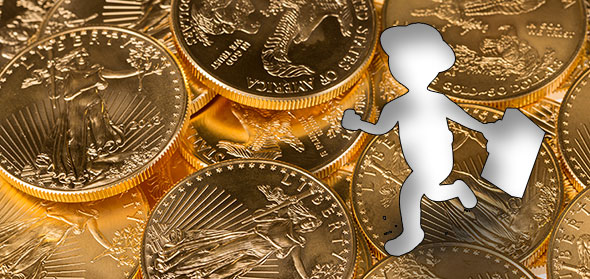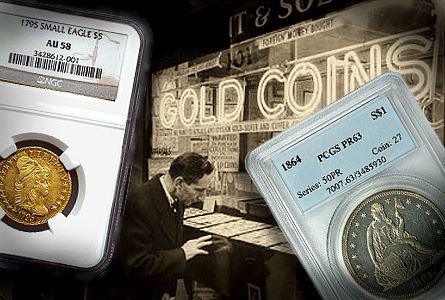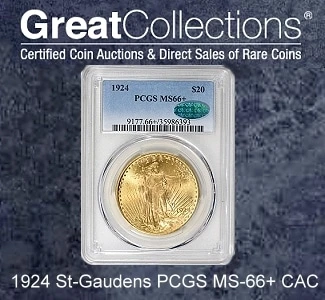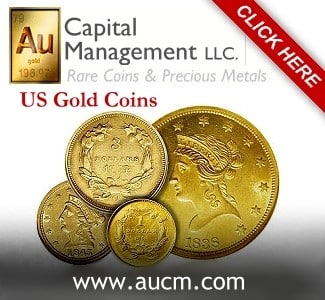
By Peter Mosiondz, Jr.
In our previous installment we covered the public auction and mail bid sales as venues for the sale of your coins.
Next we come to the outright sale to a dealer or collector.
One thing to consider is that you are not likely to find another collector who is willing to pay your asking price for your entire collection. The main reason is that the collector probably has many of your coins in his or her collection already. The collector may just want to “cherry-pick”, that is to make you an offer for only your best or most desirable pieces. And, human nature being what it is, it will most likely be a low offer. This could also apply to certain dealers as well but most dealers are seeking nice coins for their inventory and will be more likely than not to offer you a fair (translated as “wholesale”) price for your entire holding. A dealer, like all other merchants, is in business to make a profit. The profit should be a fair one. As an example, a coin that retails for $50 can not be expected to be bought for any more that $30, or 60-percent of the expected selling price. The profit rate most likely decrease as the coin’s selling price advances. For a $1,000 coin you may be offered as much as $900, or 90-percent of the selling price, if the dealer has a ready client for that coin. When contemplating an outright sale to an established dealer it is best to get three different offers.
Typically, selling everything in a panic or “fire sale” will result in the least amount of return for your coins. A fire sale results solely in a burned pocketbook – yours. Trust me; a dealer has a sixth sense when it comes to knowing when someone is selling under duress. I have another old saying; sell in haste and repent at leisure.
To fully protect yourself have a price in mind before offering your coins for sale. The simple fact is that we all know how much we have paid for our coins and, keeping in mind a fair profit for the dealer, we should be able to arrive at a fairly good figure as to what to expect in return. Don’t ever go in with the typical “What will you offer me for these coins?” attitude. Most dealers are forthright and honest but you need a sense of what to expect. Do your homework in advance. You may want to choose some CAND (Canadian Association of Numismatic Dealers) members to buy your coins. Their membership list is published in every issue of Canadian Coin News. The CAND dealer must pass a rigid check of their dealings prior to admission and they are obliged to adhere to a strict code of ethics in all transactions. This is for your protection and piece of mind. That is not to say that a dealer who is not a CAND member is not worthy of consideration. The advice I offer is that if a proposed dealer is not familiar to you seek the advice of a fellow collector, perhaps someone in your coin club that you know very well. Perhaps the best course of action is to seek offers from those dealers from whom you bought the coins in the first place. Just be sure to give the matter careful consideration.
Our third method of disposing of your collection is by self-liquidation. Unless you have very good knowledge of the current retail price levels and are able to price your coins attractively under these amounts, you have little if any hope of selling all the items. You also have to factor in the cost of the advertisements, postage and other costs. This method of selling might not be in your best interests. Give long and hard thought before taking the plunge. Other things to consider include the possibility of receiving a bad checque. If you are selling by this method be absolutely certain that the customer’s checque has cleared your bank before making shipment. You will also have to insure the mailings with Canada Post for the full replacement value in the event the coins are lost, stolen or damaged enroute to the buyer. I would also suggest that all coins mailed out be scanned on your computer to protect you against the occasional sleight-of-hand artist that likes to switch coins by substituting an inferior example for your nicer piece.
 So you see selling coins by mail order is not an easy task. To this we’ll include the internet as well. Take it from someone who has been around the block more than a few times.
So you see selling coins by mail order is not an easy task. To this we’ll include the internet as well. Take it from someone who has been around the block more than a few times.
The final method is that of consignment to a dealer. The ideal situation is to consign to a dealer who not only has a store but also travels to many shows, does mail order and has a web site. Your coins will receive maximum exposure. Most of the precautions outlined under auction and mail bid sales apply here as well, including that of insurance, title, grading, payment and the like. Most dealers handling consignments work on a 20-percent commission for lower-priced items and ten-percent for more expensive items. If the dealer insists on setting the individual prices, be sure to insist on the right to accept or disapprove. For my more valuable coins I like to set the price, in other words a reserve price. Don’t expect to receive separate payments each time a coin is sold. Many dealers will settle on the 15th or 20th of the month for the previous month’s sales. This allows time for checques to clear and to settle any customer returns. You must also allow sufficient time for the dealer to handle your consignment. A reasonable period of time would be at least six months to hold your coins for sale. Certain things must be accomplished; for example review, attribution, grading, price list and advertising preparation to name but a few considerations.
Sage advice in any of the four described methods is to know your dealer.
One final point to consider is that we all have coins of minimal value. How we ever accumulated all of them is another matter. Why not consider donating them to a coin club that has some junior members. They would surely appreciate them. I have done this on numerous occasions and the good feeling that comes with it is priceless. Today’s young enthusiast will become you and me someday.
Earlier we mentioned that the thought process that goes into selling coins is absolutely necessary. Even if you have no desire to sell right now, give the matter some serious thought anyway. A good “game plan’ that is drawn up now will reap rewards for you or your heirs later on.
Until next time, stay well and enjoy your hobby.




